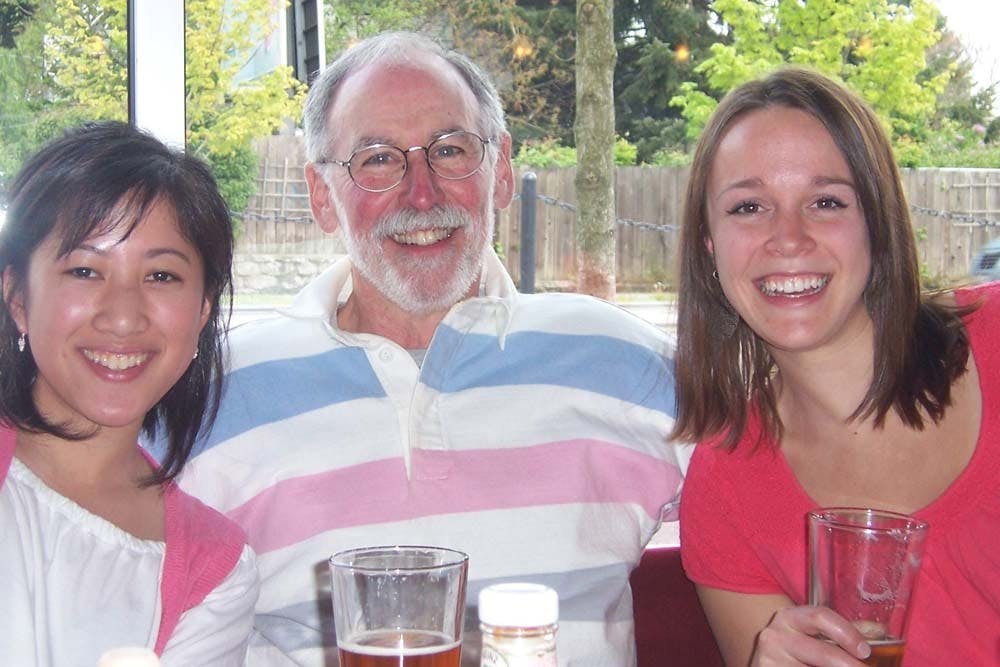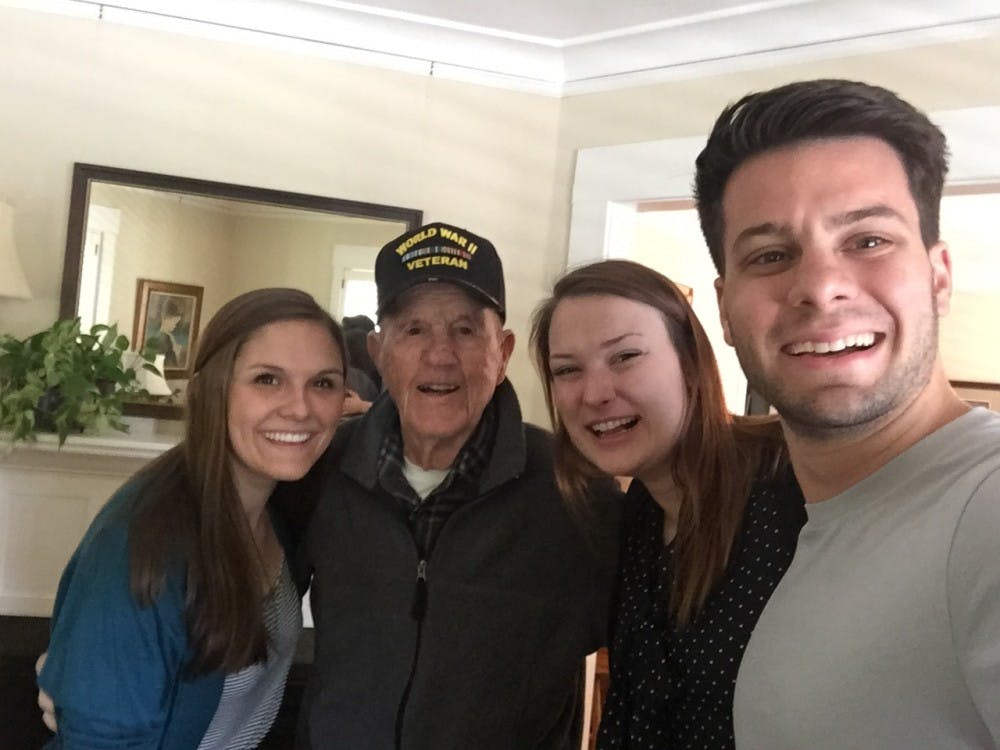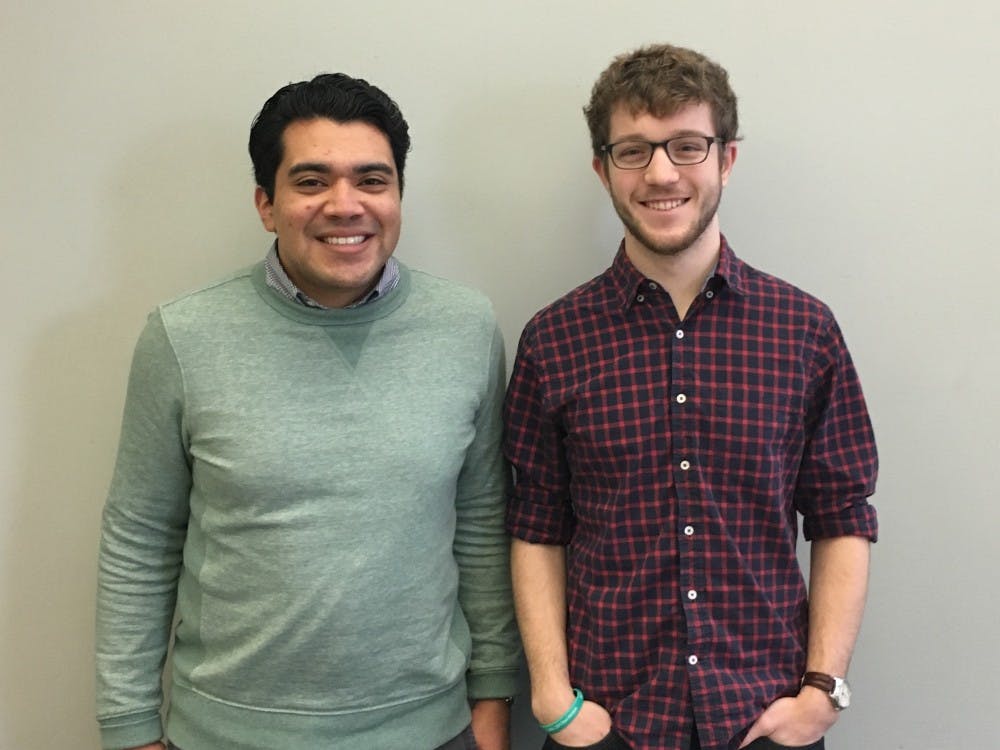Graduation celebrates the transition into the real world. For many, it is the culmination of four years of hard work: four years of papers, exams, presentations, research and lectures. Time on The Blu
(Photo submitted by Lt. Col. Lewis Doyle)
By Caitlin Yilek, Staff Writer -- yilek12@up.edu
School of Nursing
Each year, graduating nursing students attend a pinning ceremony, a tradition that dates back to the time of the Crusades. The first nursing pins were awarded in the U.S. in 1880. To date, over 3,800 UP students have received their nursing pin.
According to the Assistant Dean for Operations in the School of Nursing, Barbara Bodine, the pinning ceremony celebrates the accomplishment of completing the nursing program.
"All graduates receive a pin, which marks the transition of being a student to a professional," Bodine said.
The pinning ceremony includes a keynote speaker address, the announcement of senior award recipients, the presentation of the pins and closing remarks from students.
"The student speeches are usually a reflection of their experience as a nursing student, their emotions as they transition from student to professional and their gratitude for their support group," Bodine said. "You can count on a few tears during this portion of the ceremony."
Senior Katie Yochim said she is looking forward to the ceremony.
"It's a really good way to end this exciting journey of all the hard work we've put in," Yochim said.
According to Bodine, graduates designate a friend, family or faculty member to give them their pin. This allows graduates to honor a person who has been supportive of their success.
Yochim plans to have a family member give her the nursing pin.
"They have given me so much support over these last few years and I know they will continue to support me," Yochim said.
This year's pinning ceremony takes place May 7 in the Chiles Center at 8:30 a.m.
Social and Behavioral Sciences Department
The Social and Behavioral Sciences department feasts on pizza with its students.
"This tradition is about four or five years old," sociology Professor Robert Duff said. "Recently we caravanned to Mississippi Pizza."
Duff says the faculty members enjoy this tradition.
"We have always had full attendance," Duff said. "My impression is that the students also enjoy this opportunity to casually socialize with the faculty."
Senior Brianna Hodge enjoys this experience because it allows her to further her relationships with professors.
"It's fun to hang out with your professors outside of the classroom," Hodge said. "It allows for some awesome discussions."
ROTC
Graduating students involved in the ROTC program look forward to their commissioning ceremony at the end of the year.
"The commissioning ceremony is swearing them in and awarding them their rank," Lt. Col. Lewis Doyle said.
According to Doyle, the cadets take an oath of office in which they swear to support and defend the Constitution. Next, they receive their commissioning certificate, which states they are appointed as officers in the U.S. Army at the rank of second lieutenant. They receive two golden bars to pin on their shoulder and hat. The golden bars are normally pinned on their uniform by a loved one or family member.
"Finally the graduates are saluted by their non-commissioned officers," Doyle said. "The students also give the non-commissioned officer a silver dollar to acknowledge the debt the officers have to the non- commissioned officers who provide mentorship and training."
This ritual dates back to the Civil War, according to senior Casey Ripp.
"Non-commissioned officers were paid one extra dollar per month for training new officers," Ripp said.
English Department
The Department of English gives graduating students the option of not taking their final exams in their upper division English courses, according to Geneviève Brassard, assistant professor in the English department. Faculty also invites students to a Senior English Major Beer-Fest.
"During finals week, the faculty take us out to a bar or restaurant and we get together and drink and eat – I'm sure someone eats," Clare Shreve, an English and French studies major, said.
Brassard said she enjoys getting to know students outside of a professional setting.
"I really enjoy getting to sit down with students and talk about things other than school stuff," Brassard said.
Brassard said she thinks students also enjoy being in a casual setting with their professors after four years of being in a classroom setting with them.
"It's always nice to see professors outside of an academic setting," Shreve said. "They seem more like real people."
(Photo submitted by Professor Geneviève Brassard )
(Pin submitted by Barbara Bodine)








